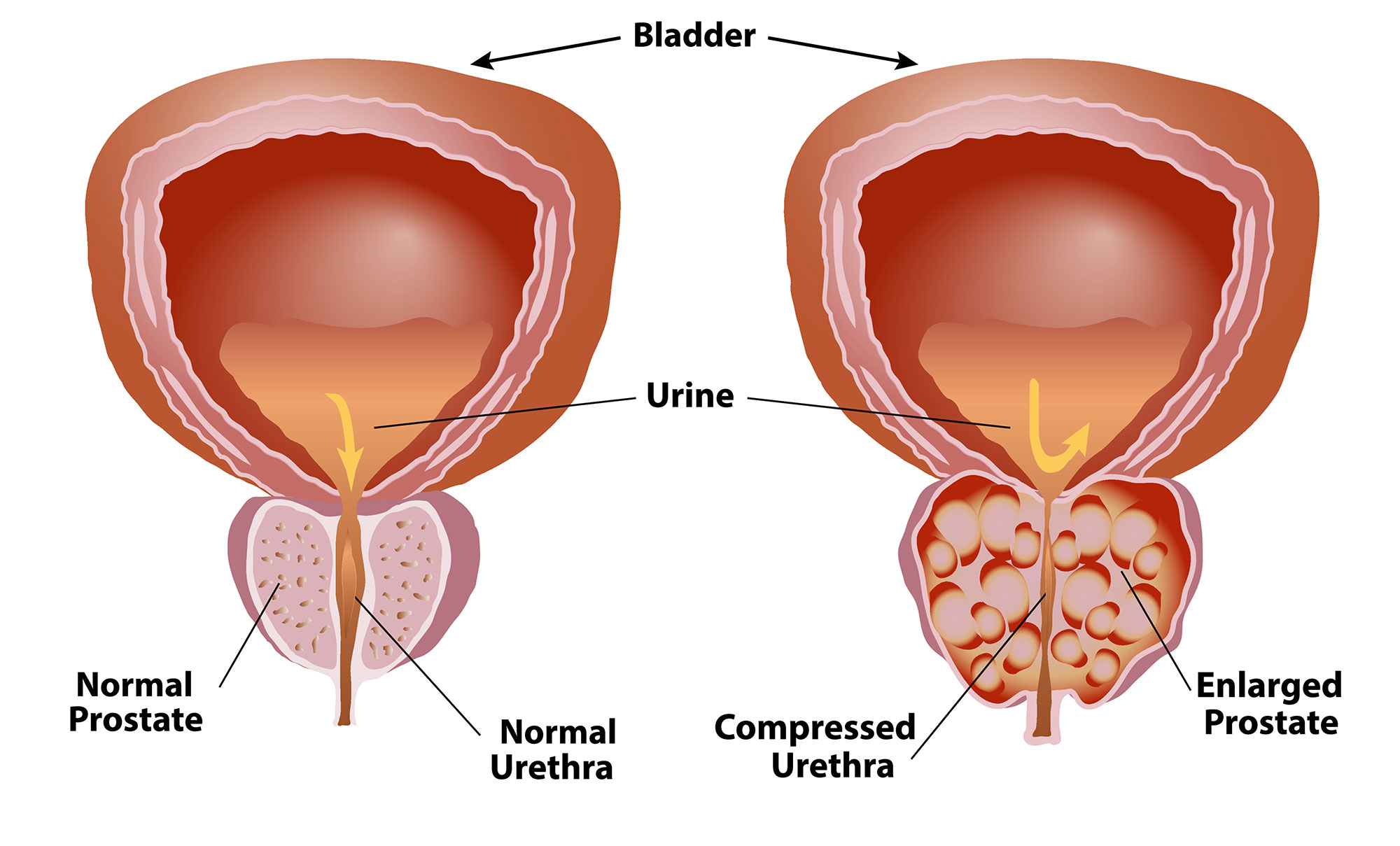
Benign prostatic hyperplasia (BPH) is a health issue that becomes more common with age. It's also called an enlarged prostate. The prostate is a small gland that helps make semen. It's found just below the bladder. And it often gets bigger as you get older.
Risk factors for an enlarged prostate include: Aging. An enlarged prostate gland rarely causes symptoms before age 40. After that, the chance of having an enlarged prostate and related symptoms starts to rise. Family history. Having a blood relative with prostate problems makes you more likely to have problems with your prostate. Diabetes and heart disease. Studies show that diabetes might raise the risk of BPH. So might heart disease. Lifestyle. Obesity raises the risk of BPH. Exercise can help lower the risk.
Early diagnosis of BPH is important because if left untreated it can lead to urinary tract infections, bladder or kidney damage, bladder stones and incontinence. Distinguishing BPH from more serious diseases like prostate cancer is important.
Many treatments are available for enlarged prostate. These include medicines, surgery and procedures that involve smaller, fewer or no cuts. The best treatment choice for you depends on:
~ The size of your prostate.
~ Your age.
~ Your overall health.
~ How serious your symptoms are.
The symptoms of BPH can be easy to ignore. However, early treatment can help you avoid potentially dangerous complications. Call your doctor if you’re noticing symptoms of BPH.
FAQ's
Services
- Kidney Stone
- Kidney Transplant Evalution & Surgery
- BHP
- Uro-Oncology
- Kidney Cancer
- Penis Cancer
- Bladder Cancer
- Prostate Cancer
- Testicular Cancer
- Urethral cancer
- Sexual dysfunction & Male infertility
- Erectile dysfunction and Impotence
- Andrology
- Robotic Surgery
- RIRS
- Blood in Urine
- Urinary Tract Infection
- Urinary Incontinence
- Prostate Gland
- Pediatric Urology & Laparoscopy
- Aging Male
- Female Urology
- Penis Enlargement
- Varicocele
- A-V Fistula & Ralated Vascular Access Surgery
